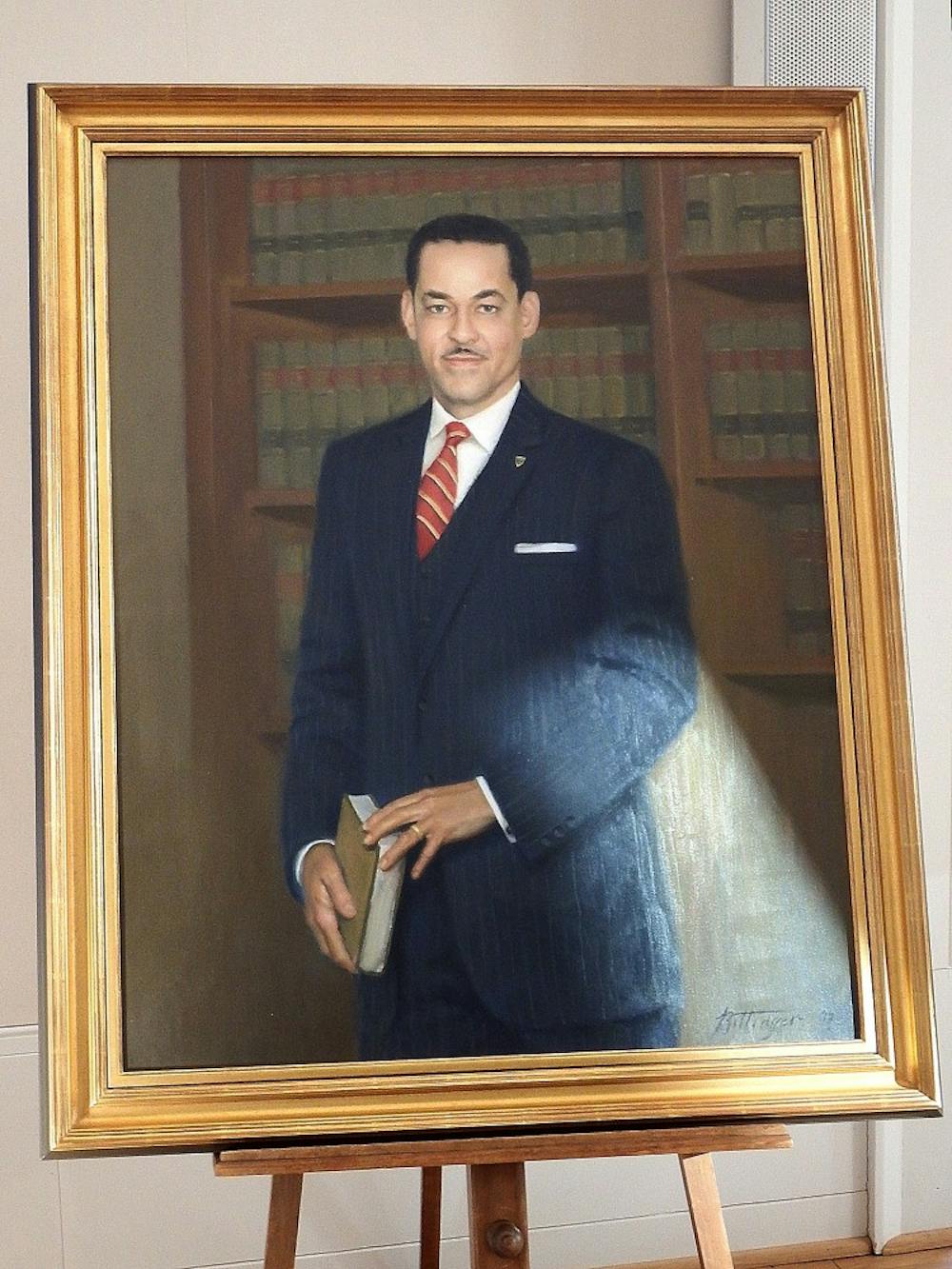The University School of Law held a commemoration Monday afternoon in Caplin Pavilion honoring the late Gregory H. Swanson — the first black student to successfully enroll at the University and the Law School’s first black student.
“The best tribute U.Va. Law School — and the larger University — can offer Gregory Swanson is to educate more students not only about the man himself, but also about their potential and their responsibility to make change in the world,” Law School Dean Risa Goluboff said. “We want our students to know who Mr. Swanson was and find inspiration in his story.”
Swanson originally applied to the University School of Law in November 1949 but was rejected due to his race. Swanson pursued legal action and successfully filed a lawsuit against the University. Swanson was then granted admission and enrolled on Sept. 15, 1950 as the first black student.
Swanson’s legal triumph against the University’s initial rejection is considered by many to have been a significant step in desegregating academic spaces. It is now an event officially remembered and honored at the University.
University Rector Frank M. Conner III spoke at the event and emphasized Swanson’s transcendent legacy.
“We are indeed indebted to Gregory Hayes Swanson and that ‘we’ includes all of us regardless of our gender, our race or our ethnicity,” Conner said. “History was recorded in 1950, when a court had to order the University to admit Gregory Swanson. And it is being recorded today as the University embraces him.”
The ceremony marked the beginning of the School of Law bicentennial commemoration and was a part of the University’s Martin Luther King Jr. celebration. The event featured the unveiling of a portrait of Swanson, the presentation of the Gregory H. Swanson Award and the announcement of the President’s Commission on the University in the Age of Segregation.
University President Teresa Sullivan announced the establishment of the new commission. The commission will complement the work of the President’s Commission on Slavery and the University to shed light on the University’s role in the era of racial segregation in America during the nineteenth and twentieth centuries.
“This means that today’s commemoration of the life and legacy of Gregory Swanson is another critical step, and an important step, in our ongoing effort to tell the full story of the University’s history,” Sullivan said.
According to Sullivan, she will charter the commission for four years, with the consultation and approval of her successor, University President-elect Jim Ryan.
In addition to the new commission, this is the first year the Gregory H. Swanson Award is being offered to Law students. Kim Forde-Mazrui, a Law professor and director of the University’s Center for the Study of Race and Law, led the commemoration.
“The Gregory H. Swanson Award will annually honor students in our community who exemplify the traits that Mr. Swanson modeled by his character, words and deeds,” Forde-Mazrui said.
Awarded for “courage, perseverance and commitment to justice,” the Gregory H. Swanson Award was granted to two distinguished students this year — Toccara Nelson and Jah Akande, both of whom are second-years at the University’s School of Law. The award is intended to be granted to only one student, but this year was an exception.
“There were so many wonderful students who were nominated who have walked paths that Mr. Swanson would be proud of today,”Goluboff said. “We couldn’t choose just one. So, we have chosen two.”
Relatives of Swanson both attended and spoke at the event, including his nephew, Evans D. Hopkins, the author and chair of the Swanson Legacy Committee, a group dedicated to raising awareness of the frequently-untold story of Gregory H. Swanson.
“There is an element of cultural justice from this place that teaches justice,” Hopkins said. “And this cultural justice can lend a crucial power to our present and our future. A power that only stories can.”
Swanson’s portrait will be displayed at the Law Library starting Feb. 6. The portrait features a plaque that describes his lawsuit against the University and his legacy as both a student and a practitioner of law.
“Remembering Gregory Swanson is important not only for understanding our past, but also for providing a model for the future,” Goluboff said. “In putting himself on the line for his beliefs, Mr. Swanson exemplifies the very best of the U.Va. lawyer then and now. He reminds us that change is possible when people identify the need for change, take responsibility for it and feel empowered to act.”







